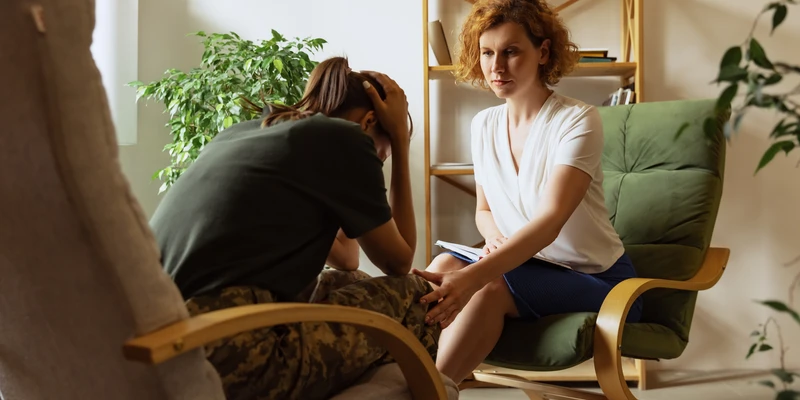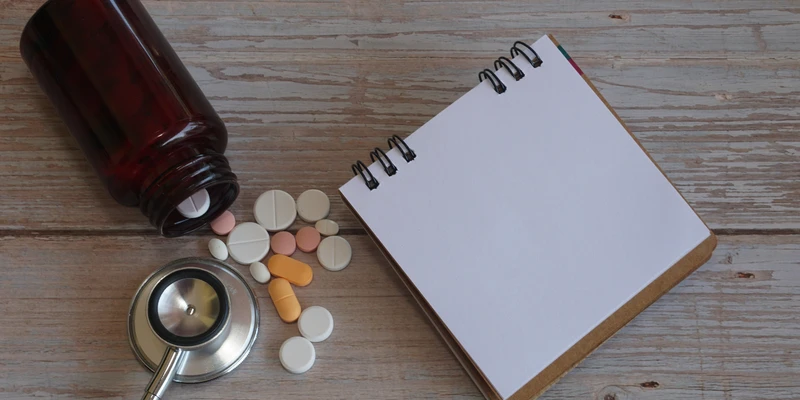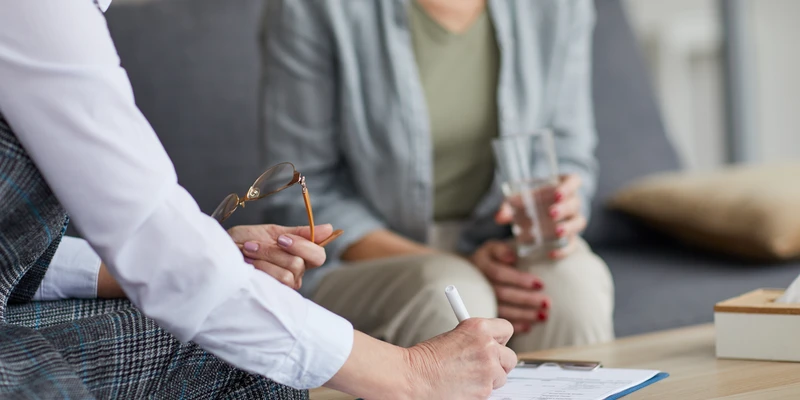PTSD, or post-traumatic stress disorder, is a serious condition many veterans face, often bringing flashbacks, anxiety, and sleep problems that make daily life harder. The good news is that proven PTSD treatment for veterans, like CBT, EMDR, and medication, is available through NHS programmes and veteran mental health services, offering real support and relief.
Understanding PTSD in Veterans
Many military veterans experience posttraumatic stress disorder after exposure to traumatic events during service. PTSD can affect your mood, behaviour, and daily life, making it essential to understand what causes it, how it shows up, and its impact on your well-being.
Risk Factors and Causes of PTSD
PTSD often develops after you witness or go through a traumatic event. For military personnel, these events may include combat, roadside bombings, injury, or even the loss of friends. The nature of military deployments puts you at greater risk because of repeated exposure to dangerous and life-threatening situations.
Not everyone who experiences trauma will develop PTSD. Risk factors include the severity and length of trauma, your previous mental health history, and lack of support after returning home.
Genetics, childhood experiences, and the amount of stress you have also play a part. If you feel isolated or have no one to talk to, this might make things worse.
Common risk factors of PTSD in veterans include:
- Direct combat exposure
- Serious injuries
- History of mental health issues
- Limited support system
Symptoms of PTSD
Symptoms of PTSD usually fall into four main groups: reliving the event, avoiding reminders, negative mood changes, and feeling on edge. You might have nightmares or flashbacks that make it feel like the trauma is happening all over again. Loud noises or certain smells can trigger strong memories.
You may also find yourself avoiding people or places linked to the trauma. Feelings of numbness, guilt, shame, or detachment are common. Many veterans report being on high alert, easily startled, or having angry outbursts. Trouble sleeping and difficulty concentrating can make daily tasks much harder.
Key symptoms of PTSD:
- Nightmares or flashbacks
- Avoidance behaviour
- Feeling isolated or numb
- Hypervigilance and irritability

Impact on Mental Health
PTSD can have a major impact on mental health, often leading to other mental health problems such as anxiety and depression. Veterans may feel hopeless, lose interest in daily activities, or struggle with suicidal thoughts if the right support is not in place.
These challenges don’t only affect the individual; they also impact veterans and their families, straining relationships and creating difficulties at work or home. The constant feeling of being on edge can also increase the risk of substance misuse, including drugs or alcohol.
Because PTSD is closely linked to both emotional and physical health conditions, seeking timely mental health care is vital. With the right treatment, such as psychological therapies and specialist support services, military veterans can manage symptoms more effectively and take steps toward recovery.
The Link Between PTSD and Addiction
PTSD and addiction often go hand in hand, especially for military personnel and veterans. Many turn to alcohol or drugs to escape painful memories or emotions. This coping strategy may bring short-term relief, but it usually makes PTSD in adults worse. The transition from military to civilian life can add more stress, increasing the risk of substance use.
Effective recovery means treating both conditions at the same time. Programmes that combine support and treatment give veterans tools to manage trauma without relying on substances. With the right support for veterans, long-term healing and stability are possible.
Evidence-Based PTSD Treatment for Veterans
PTSD treatment for veterans can help you manage symptoms and regain control over your daily life. Below are some of the most common evidence-based approaches to address the disorder:
Prolonged Exposure Therapy
Prolonged Exposure Therapy is a type of psychological treatment designed to help you slowly face memories, feelings, and situations you have avoided because of trauma. The core idea is that by confronting these fears in a safe, guided way, your brain can learn that trauma reminders are not always dangerous.
During this therapy, you may be asked to retell the traumatic event several times or visit places and activities you have avoided. This is known as exposure. Over multiple sessions, exposure aims to reduce anxiety and distress linked to trauma reminders. The treatment is structured and follows a specific plan, often lasting about 8 to 15 sessions.
Cognitive Processing Therapy
Cognitive Processing Therapy (CPT) is a form of Cognitive Behavioural Therapy (CBT) focused on changing how you think about trauma and its aftermath. This therapy works by helping you identify and challenge unhelpful beliefs about the traumatic event.
A key part of CPT involves discussing the trauma in detail and understanding how your thoughts affect your emotions and behaviour. You complete written assignments, participate in guided sessions, and learn new ways to interpret your experiences. The therapy usually lasts 12 sessions, but may go longer if needed.
A recent clinical trial in Japan tested CPT with adult outpatients and found it led to significant reductions in PTSD symptoms, depression, and suicidal ideation, with a very low dropout rate. The results also showed improvements in overall functioning and quality of life, strengthening evidence that CPT is effective across different cultural settings.

Virtual Reality Therapy
Virtual Reality Therapy uses new technology to create realistic simulations of traumatic events in a controlled setting. This type of mental health treatment is especially helpful if you have trouble imagining trauma scenarios or if traditional talk therapy is not enough.
In a session, you wear a virtual reality headset and are guided through simulations related to your trauma. This exposure therapy method lets you confront memories and triggers with support from a mental health provider.
Many veterans prefer virtual reality because it feels safer than real-life exposure, but still provides the benefits of gradually reducing fear. Therapists customise the simulations to match your unique experiences, making the treatment more personal and targeted to your recovery needs.
Eye Movement Desensitisation and Reprocessing (EMDR)
EMDR therapy is designed to help reprocess traumatic memories so they no longer cause overwhelming distress. Many veterans report being stuck in vivid, intrusive memories that feel “unfinished.” EMDR uses guided eye movements or other forms of bilateral stimulation to help the brain process these memories differently.
EMDR works by recalling distressing events while following guided eye movements in a safe setting with a trained therapist. Over sessions, the memory loses its emotional intensity and becomes less disruptive to daily life.
EMDR is particularly useful for complex PTSD and for those who have not responded to other therapies. It addresses both mental health conditions and psychological trauma, making it a strong option in specialist mental health services.
Medication for PTSD
While therapy is often the main treatment, some veterans may also require treatment with medication. Antidepressants like SSRIs (e.g., sertraline, paroxetine) are commonly prescribed to reduce anxiety, depression, and sleep problems.
Medication is usually prescribed alongside therapy, with regular reviews from mental health providers. It can stabilise mood, reduce the frequency of flashbacks, and help with related physical health symptoms such as insomnia or panic attacks.
This approach is especially valuable for veterans dealing with co-occurring conditions such as depression, substance misuse, or complex mental health needs. Combined with therapy, it creates a balanced approach to care for veterans.

How to Access Treatment Options for Mental Health Services
Many veterans benefit from dedicated mental health programmes tailored to military experiences. Services are available both within government departments and through approved charities, making treatment more accessible and focused.
Role of Veterans Affairs
Veterans Affairs provides direct help for mental health issues, such as PTSD, through services like statutory and community-based clinics. You can access counselling, medication management, and trauma therapies. These are aimed specifically at military veterans to address challenges linked to service.
Specialised support such as Op COURAGE in the UK offers a clear pathway for getting help. Staff understand military culture and the unique stresses veterans face. There is often help for your family and carers as well.
Your GP can refer you, or you may self-refer in certain cases. These services often include psychological therapies, group treatment, and support in managing daily life.
Supporting Recovery and Reintegration
Support for recovery goes beyond only treating PTSD symptoms. Programmes include peer support, practical advice, and therapy designed for needs like adjusting to civilian life. Being around other veterans who share your background can help reduce the feeling of isolation.
Many organisations, such as Combat Stress, provide group sessions, one-on-one therapy, and education on coping strategies. You might also find placements or guidance with work, housing, and family relationships to help you settle back into everyday routines.
It’s important to find a service that offers both medical treatment and broader support for reintegration. Accessing these resources can make a big difference as you work through recovery and start to rebuild.

Get Urgent Help and Treatment for PTSD at Sierra Recovery
If you’re struggling and feel like the weight of PTSD is becoming too much to carry on your own, please know that you don’t have to face it in silence. At Sierra Recovery, compassionate support is here whenever you need it most.
Whether you’re feeling overwhelmed, experiencing distressing memories, or simply unsure where to turn next, reaching out could be the first step toward feeling lighter, safer, and more in control again.
Our team is ready to listen without judgment and guide you toward PTSD care tailored to your needs. If the situation feels urgent, don’t wait.
Frequently Asked Questions
What are the most effective interventions for PTSD in ex-service personnel?
The most effective treatments are usually structured talking approaches. Options like CBT, prolonged exposure, and group-based support are all recommended for veterans. These methods help you work through traumatic memories and gain better control over daily symptoms.
How can veterans in the UK access support for PTSD?
You can access support through your GP, who can refer you to specialist services. The NHS provides therapy services that are free of charge to veterans. Charities and dedicated helplines also offer advice and help with getting appointments quickly.
Which organisations offer specialised PTSD assistance for veterans?
Several organisations in the UK help ex-service personnel with PTSD. These include the Royal British Legion, Combat Stress, and Help for Heroes. Each provides therapy, support groups, and practical advice tailored to veterans’ needs.
What advancements have been made in PTSD treatment for former military members?
Recent years have brought more specialised therapies and greater awareness of PTSD in veterans. There has been a stronger focus on evidence-based psychological treatments, digital therapy options, and better training for mental health professionals who work with ex-forces personnel.
Can PTSD in veterans be completely cured?
While there isn’t a guaranteed “cure,” many people with PTSD experience significant recovery with the right treatment and support. Evidence-based therapies can greatly reduce symptoms, while medication and social support help maintain progress. For some, PTSD becomes manageable to the point where daily life feels normal again.
How do families play a role in supporting veterans with PTSD?
Veterans and their families are deeply connected, so PTSD can affect everyone in the household. Families often provide crucial social support, encourage loved ones to seek help, and join in group therapy or education sessions. Many services for veterans include family-focused programmes to strengthen relationships and improve wellbeing during the recovery journey.






